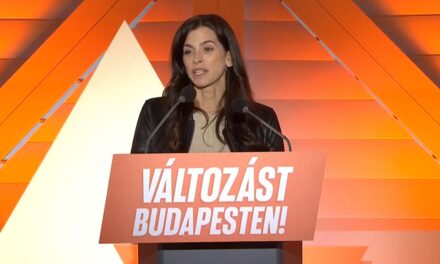Among other things, in this year's admissions, the advanced level graduation is no longer a central requirement and there will be no centrally determined minimum scores either.
Significant amendments to the higher education admission regulations will come into effect in 2023 and 2024, the Secretary of State responsible for higher education and innovation of the Ministry of Culture and Innovation announced at the Budapest Technical Vocational Training Center (BMSZC) Petrik Lajos Két Tanítási Nylvű Technikum on Monday.
Balázs Hankó said at the career orientation class for graduating students: the advanced level graduation is no longer a central requirement for this year's admissions, the universities and colleges decide on their own competence. There will be no centrally determined minimum scores, and it is also new that the admission procedure is entirely electronic, and the application can even be made from a mobile phone.
More serious changes in admissions are expected from 2024, he continued, pointing out that from next year, higher education institutions will have even more freedom in selecting their future students. Balázs Hankó indicated: from 2024, universities can determine the range of subjects that can be taken into account in the calculation of study points and graduation points, as well as the activities and results for which extra points are awarded in admissions.
Extra points will continue to be widely awarded, among other things, for language skills, results achieved in academic and sports competitions, and experience in the labor market, the state secretary announced.
Balázs Hankó recorded: it is worthwhile to take an advanced baccalaureate, because from 2024 you can collect a higher score with it. As he said, if someone achieves 100 percent performance in the advanced-level graduation exam, he will receive 100 points for it, but if he passes the intermediate-level exam with the same result, the student will receive only two-thirds of that, 67 points.
He emphasized: the professional exam taken in vocational training is considered an advanced level graduation.
The aim of the reform of admissions is to make the centrally managed system more flexible, and higher education to be more competitive as a result. The better the training, the closer it is to everyday life, to practice, to economic and social actors - said the state secretary, who also pointed out that those who obtain a degree in Hungarian higher education today are on average in 36 days, and the wage advantage of graduates 80 percent.
He also said that Hungarian universities are doing well in international rankings: today there are 11 universities that are in the "elite league", that is, that belong to the top five percent of the world's 28,000 higher education institutions.
Regarding further education opportunities, Deputy State Secretary for Vocational Training Gáborné Pölöskei told the students that in case of further education in a specialized field, the experience gained in vocational training will be taken into account in higher education, so the training time can be shortened.
He also announced that, in addition to the regular student allowances in vocational training, upon successful completion of the professional exam at the end of the training, students also receive a one-time start-up grant, the amount of which varies between HUF 133,000 and HUF 302,000 depending on the result achieved. In the past school years, an average of HUF 240,000 was paid to young people in the form of such benefits, he noted.
In the interactive career guidance class, Balázs Hankó answered the students' questions about study opportunities abroad, saying that a significant number of students can go abroad for half a year during their university years, and they can even count the knowledge acquired abroad with so-called credit recognition.
He recalled that before the coronavirus epidemic, more than eight thousand, and last year more than ten thousand, participated in a six-month international mobility program, and this year there is room for 13 thousand students. He noted that the "internationalization" of higher education will become stronger in the period ahead.
In response to a question, Balázs Hankó stated: if the number of applicants and students increases, higher education will not be diluted, but strengthened. The Hungarian economy needs more graduates in many fields in order to "be competitive", he underlined.
The students also asked about scholarship opportunities and the details of the calculation of admission points.
You can apply for courses of higher education institutions starting in September until February 15.
MTI
Cover photo: Young people celebrate their successful admission (Photo: MTI/Noémi Bruzák)












